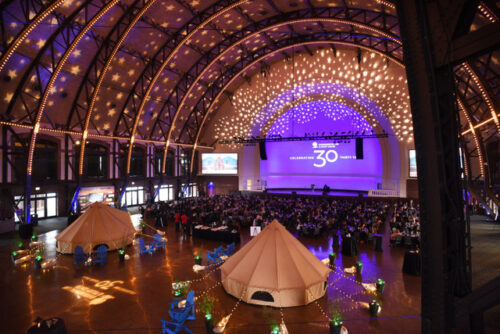By Judy Carmack Bross
For Howard Learner, Founding Executive Director of the Environmental Law and Policy Center, the goal has always been “win-win-win”.
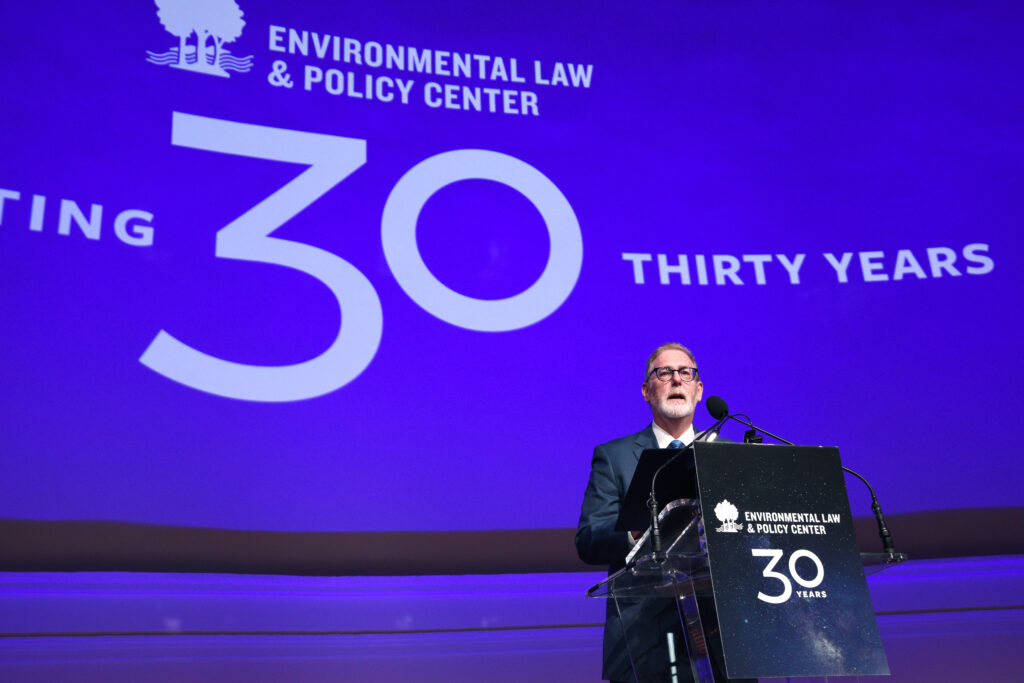
ELPC Gala Howard Learner
What began 30 years ago as a “ground floor startup” has become a Midwest public interest litigation and green economy advocacy powerhouse due in large part to that win times three. While several other environmental organizations from that time no longer exist, ELPC had many victories to celebrate this summer at its 30th Anniversary Gala at Navy Pier, and just as many future goals to take on using their strategic advocacy connecting environmental progress together with economic growth and new jobs: a true win-win-win.
When we talked with Learner this week, he had just received word that ELPC had won the American Bar Association’s prestigious national 2023 SEER Award for “Excellence in Environmental, Energy, and Resources Stewardship.”
“We are pragmatic idealists who know that results matter to people and our environmental health. We determine viable, strategic paths to get things done,” Learner said. “Ten years ago, we were thought to be visionaries when ELPC talked of cleaning up the electric grid. Today, clean energy is the largest growing part of the energy industry.”

ELPC Gala Tree Appetizers |

ELPC Gala Smores Station |
Before guests gathered at the 30th Anniversary Gala to hear Learner, U.S. Senator Dick Durbin, and ELPC Board leaders describe the environmental win-win-wins, they took the opportunity to celebrate Midwest nature, slipping into pitched tents in the ballroom and admiring trees which suddenly moved to show that they were actually actors.
Over dinner, speakers highlighted 30 years of accomplishment.
“Issues that ELPC addresses are locally, regionally and globally important. The Great Lakes comprise the largest freshwater body in the world: this is where we live, work and play. While people around the world are desperately seeking safe, clean drinking water, the Great Lakes provide 42 million gallons of freshwater to eight states and two Canadian provinces,” Learner said. “We work to advance sustainable transportation and land use strategies to develop the Midwest’s higher-speed rail passenger network that creates environmental benefits, economic development and jobs. With Chicago as its hub, there would be 400 miles connecting the Midwest’s large and midsized cities. Trains pollute much less than cars and airplanes and more jobs are pulled into the region.”
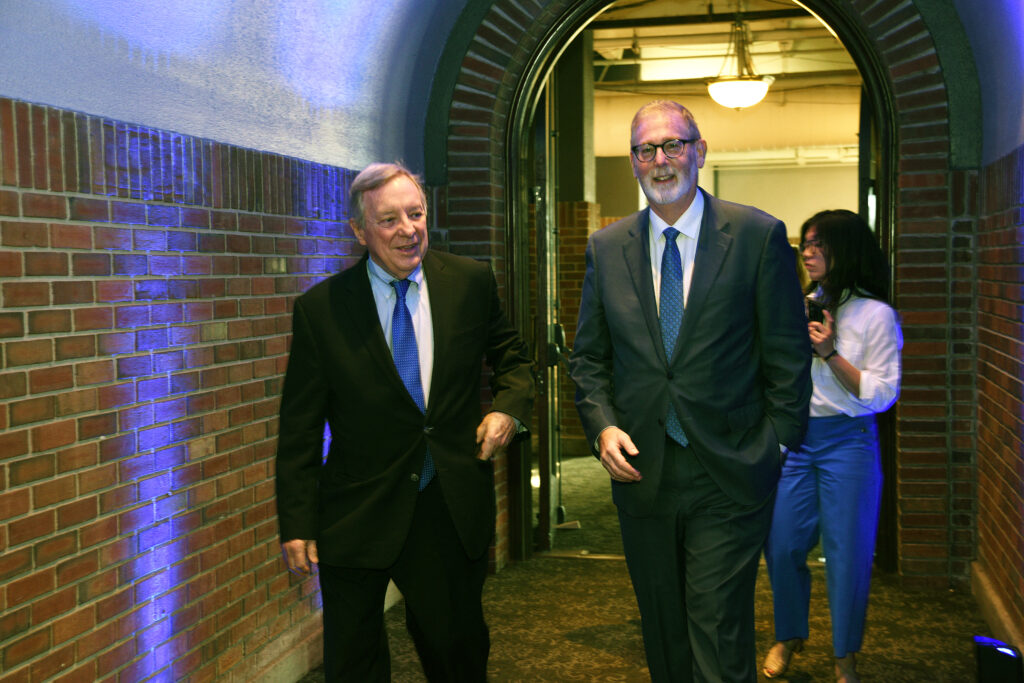
ELPC Gala Senator Durbin Howard Learner
Jerry Adelmann, President and CEO of Openlands, told us:
Howard Learner and the Environmental Law and Policy Center have provided essential support to countless organizations like Openlands that do not have adequate legal expertise or capacity in-house. Through meaningful partnerships with ELPC, significant conservation milestones have been achieved over the past 30 years. For instance, when the Illiana Tollway was first proposed–a road that made no transportation sense and would have irreversibly harmed Midewin, America’s first national tallgrass prairie–we immediately turned to Howard to represent us in the courts. Ultimately, the Illiana Tollway was killed.”

Midewin
Much of Learner’s work has concentrated on developing and advocating new directions on environmental policy issues, including recent federal district court victories to protect the Midwest’s natural areas and enforce National Environmental Policy Act requirements that agencies fully and fairly consider reasonable alternatives to their actions.
Working closely with community organizations is one of the ways Learner and ELPC
get the job done. Learner and his ELPC public interest attorneys represent the Alliance of the Southeast and Friends of the Parks in filing a federal court lawsuit challenging the U.S. Army Corps of Engineers’ plan to expand its toxic dredge waste material dump on Lake Michigan’s shoreline in Chicago’s already heavily polluted Southeast Side community. The lawsuit on behalf of the two community groups contends that the Army Corps’ actions to expand the toxic dump for 20 more years violates both federal and state laws. “Kids’ health has to be protected as do our ecological resources. Safe clean water and healthier air quality makes life better for everyone.”
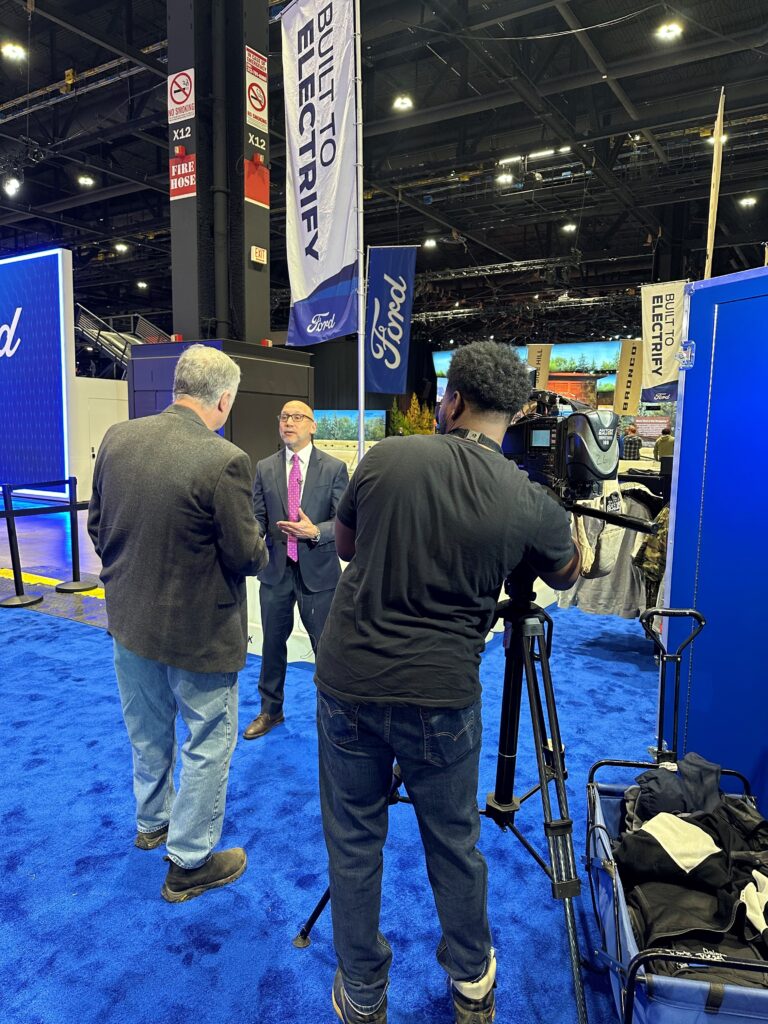
ELPC Senior Attorney Rob Kelter 2023 Auto Show
At the gala, Learner talked of ELPC’s beginnings and how the fairly small startup filled a huge gap in the Midwest.
“In 1991, seven major foundations pooled funds and asked several local and national lawyers for proposals to create a regional-based legal center to address environmental programs in the Midwest. Such a group didn’t exist, and it was badly needed.”
Learner, despite having a great public interest law job and a growing family with a new baby, heard the call. He worked with partners to develop a strategic plan for the new ELPC start-up, and the foundations committed $850,000 per year for three years. He departed his prior job on good terms, hired the initial ELPC staff, subleased office space, recruited Board members, started assembling furniture, and set up the core organizational structure.
They now have six offices across the Midwest states and in Washington, D.C., close to 50 talented staff, expert consulting teams, and an annual budget of $11 million.
One of the most positive and energetic people we have interviewed, Learner emphasizes ELPC’s present and future challenges. Re-powering the Midwest with solar energy and storage, protecting the Great Lakes, waterways and forests, cleaning up the Chicago River, and enforcing policy and legal aspects are all on Learner’s agenda. ELPC rarely works alone. “Success has many mothers and fathers of invention. We team up with large conservation and environmental groups and grass roots community groups, with both Chambers of Commerce and labor unions, and many more. ELPC’s past Board Presidents have been leaders in many conservation, legal and business areas.”
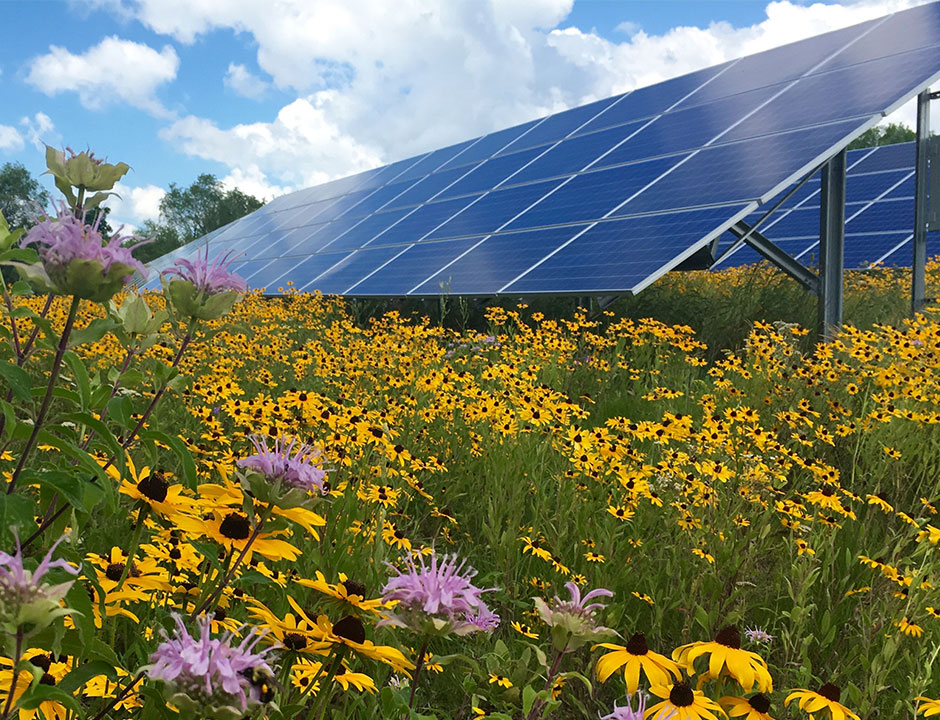
Pollinator Friendly Solar
“We are working to promote electric school buses. School buses are often old and highly polluting vehicles. Things are beginning to move quickly on this. ELPC was viewed as visionaries when we first talked about electric cars, and now most automobile companies and the whole transportation industry is moving fast to electrify.”
“Landlines, dial-up modems, flip-top phones – many of us are old enough to remember when they were our only alternatives,” he said. “The change in telecommunications in the past 20 years can be mirrored in the electric sector which is transforming to much more solar energy and battery storage just as landlines transitioned to wireless technologies changing the way we live and work.”
A native Chicagoan who biked across Wisconsin as a teenager, and hikes with his family today, Learner speaks with joy of Chicago’s Riverwalk. “We have worked with Chicago’s Mayors, Senator Durbin, Friends of the Chicago River and others to make sure that our city’s iconic river is cleaner, safer and enjoyable. Today, the Chicago River teems with people in kayaks and canoes, and runners, joggers, and families with baby strollers on the Riverwalk and in parks along the shoreline.
“I live in Edgewater and can swim in Lake Michigan on a nice summer day and not worry if lake water gets in my mouth. Thirty years ago, it was pretty contaminated, but it is now safe most days to swim in it. Remember the alewives on the beach?”
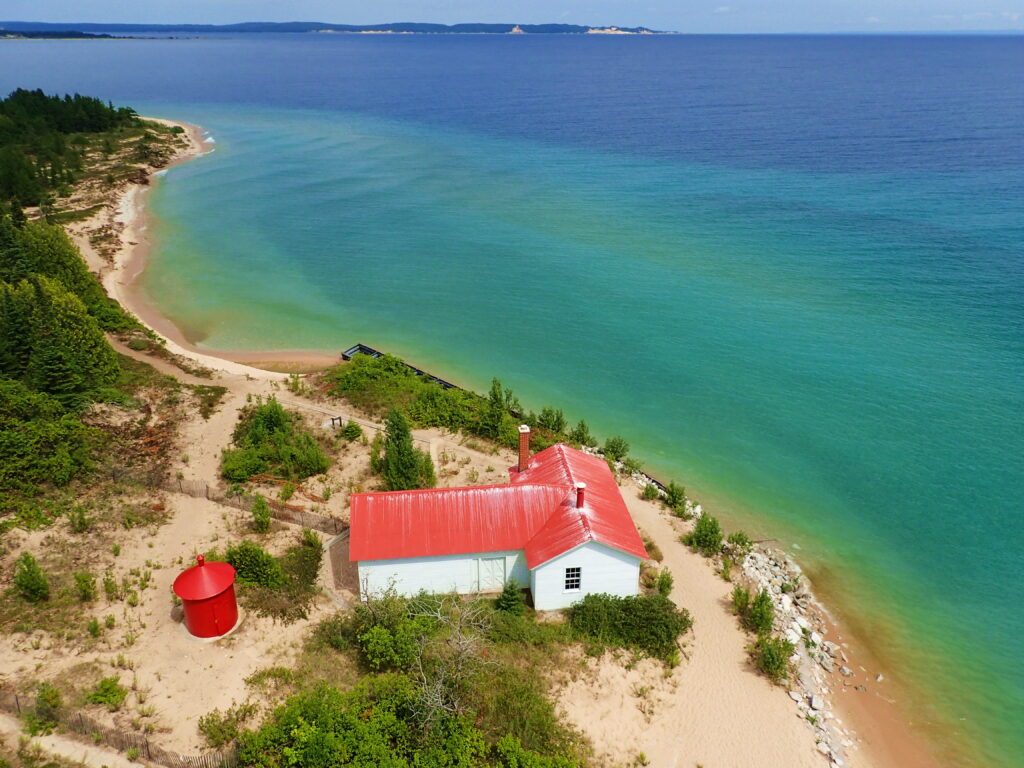
Lake Michigan aerial Sleeping Bear Dunes
Dr. Christopher Straus, a longtime friend of ELPC, said recently:
“Howard Learner in founding ELPC created a generation-changing force for the upper Midwest and Great Lakes region. He heads a team of amazingly effective talent holding our corporations and government leadership accountable, all while promoting achievable environmentally forward solutions tackling problems all too many wish to ignore.”
For more information about the Environment Law and Policy Center, visit: elpc.org



